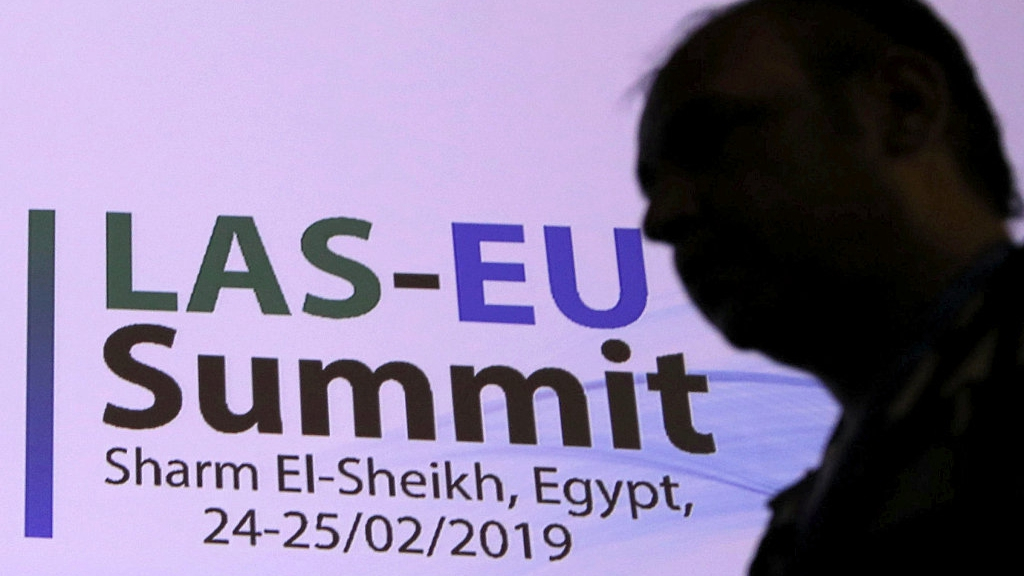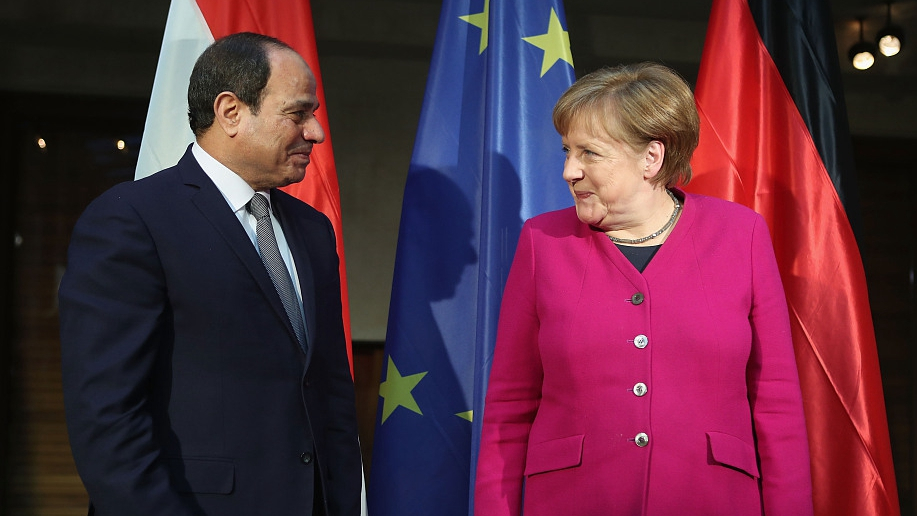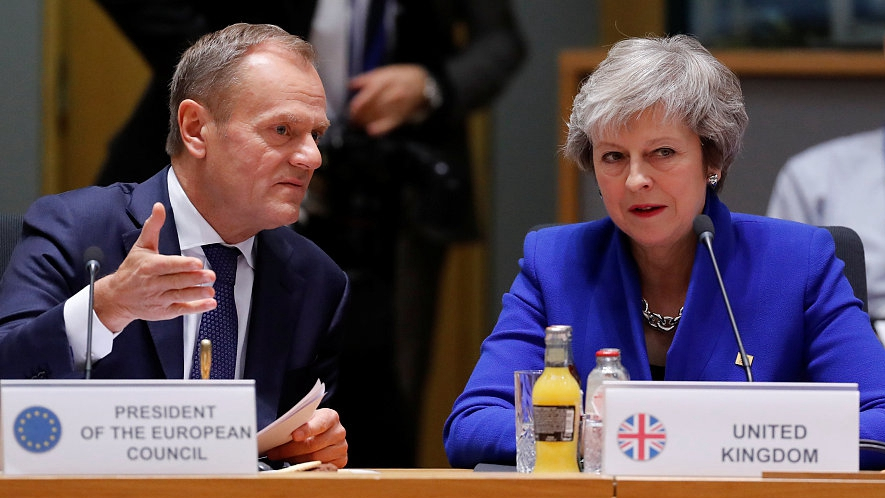
World
09:04, 24-Feb-2019
Arab, EU leaders aim to build bridges at Red Sea meeting
By John Goodrich

The League of Arab States (LAS) and the European Union will look to project unity on Sunday as leaders from the two blocs meet in the Egyptian resort of Sharm el-Sheik.
The two-day meeting of Arab and European nations is the first ever at the leader level, indicating a new impetus towards cooperation after effective joint action on migration.
It also reflects the EU's intention to play a more comprehensive global role. Strengthening ties with other regional groups – such as the LAS, African Union, Association of Southeast Asian Nations, and Community of Latin American and Caribbean States – is a part of the plan.
Read more:
Egyptian President Abdel Fattah al-Sisi will host the summit alongside European Council President Donald Tusk, and leaders from most LAS and EU member states are expected to attend.
Saudi Arabian King Salman bin Abdulaziz Al Saud, Lebanese Prime Minister Saad Hariri, German Chancellor Angela Merkel and British Prime Minister Theresa May are all due to participate. French President Emmanuel Macron and Spanish Prime Minister Pedro Sanchez are not expected at the Red Sea resort.

Egyptian President Abdel Fattah al-Sisi and German Chancellor Angela Merkel are pictured at the 55th Munich Security Conference, February 16, 2019. /VCG Photo
Egyptian President Abdel Fattah al-Sisi and German Chancellor Angela Merkel are pictured at the 55th Munich Security Conference, February 16, 2019. /VCG Photo
The meeting appears to be a first step towards greater cooperation, with analysts not expecting major breakthroughs to be made. "The summit was always going to be more about symbolism than about any concrete decisions that might come out of it," Anthony Dworkin wrote in a commentary for the European Council on Foreign Relations think tank.
Helping address migration remains a key concern for Brussels, and Egypt has had a significant role in cutting down routes to Europe via the Mediterranean in recent years. The EU is also working with other North African countries to limit migrant flows, which have dropped sharply since 2015.
According to Dworkin, "the summit was not intended so much to unveil new initiatives but rather to highlight and give official recognition to a relationship that is largely meeting Europe's immediate needs."
Internal EU divisions over migration policy continue however, with recent flashpoints – notably between France and Italy – showing splits in the bloc are far from healed.
A United Nations official told AFP that EU division on migration “risks blocking all the other discussions” at the summit. A meeting of LAS and EU foreign ministers concluded without a joint political declaration being signed on February 4, with EU members reportedly unable to agree on the wording.
Top EU diplomat Federica Mogherini insisted this week that the meeting will feature "frank, open discussions" – and not only on migration. "We will have first of all discussions on our economic cooperation, on our common region," she said.
Multilateralism, trade and investment, and security are on the agenda, while regional issues such as the Middle East peace process, Yemen, Libya and Syria are also set to be discussed.

European Union Council President Donald Tusk and British Prime Minister Theresa May, pictured at an EU summit in Brussels, November 25, 2018, will hold one-on-one talks in Egypt. /VCG Photo
European Union Council President Donald Tusk and British Prime Minister Theresa May, pictured at an EU summit in Brussels, November 25, 2018, will hold one-on-one talks in Egypt. /VCG Photo
While finding new avenues for LAS-EU cooperation will be the focus of the summit, strains within the European bloc are expected to play out on the sidelines.
The looming Brexit crunch is likely to add intrigue, with British Prime Minister May expected to press leaders of individual EU member states for concessions ahead of votes in the British parliament on Wednesday.
An EU official told Reuters on Friday that May would hold one-on-one talks with Tusk, but with only 24 of 28 leaders expected to attend, there could be "no deal in the desert" – dampening speculation about a decisive breakthrough.
7445km

SITEMAP
Copyright © 2018 CGTN. Beijing ICP prepared NO.16065310-3
Copyright © 2018 CGTN. Beijing ICP prepared NO.16065310-3